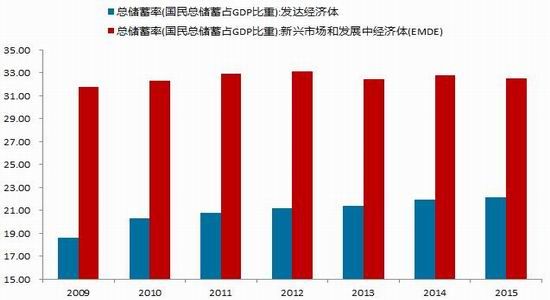把一些文中的核心想法抽出来写在新的一篇回答里了:
感谢大家的评论,数量太多没法一一回复,抱歉。就补充几点回复在这里吧:
有不少评论者认为;欧洲各国如果没把全球殖民化,就不会在十九世纪超过中国,或者不会像现在这么发达。额,有点无语。
这些“帝国”的殖民地过程确实对这些国家有利,而且肯定对其它被殖民的地方有害。但是这些国家当时的经济发展不依靠对外扩张啊。英国早在帝国时期之前就已经当了世界工厂很长一段时间了。几次工业革命都发生在英国,后来才开始有移民非洲亚洲之类的事。因果关系要反过来,他们是因为经济富裕科技发达才跑去欺负别人。而不是因为去欺负别人才变得富裕(这是很错误危险的想法)。再说,很多欧美国家都没怎么殖民过(譬如瑞典),现在仍然跟英美法一样算是发达国家。如果真要把所有事情都归功到军事成绩上,有点对不起当时的经济学家和科学家等等。
另外,很多人说把这篇当做英语阅读练习之类的。网上有几百亿个英文文章,大家想要练习英语的话推荐各个网站多读一读。多读多看,对学习外语来说还是蛮有效果的。我也是这样锻炼中文的。

昨天用英语写是因为没有多少时间。每一段中文需要起码五倍多的时间才能写出来。所以匆忙之中就用英文了,不好意思。
---原文---
I read another answer to this question,and wanted to add some my own theories about income disparity indeveloped countries vs China etc.
---
Firstly, what is the real extent ofthis disparity? China's per capita income has already reached about$4,000 on average. In some Tier 1 cities (e.g. Shanghai), itsprobably already above $10,000. However in most “highly”developed regions, the average income is close to $50,000. And yes,if we look at major western cities such as London or New York, theper capita income is easily over $100,000.
On the face of it, it seems there isstill a huge gap between China and developed nations, with incomelevels still being about 10x higher in the west. To be morerealistic, we should probably compare the income level with cost ofliving (since cost of living is also around 3-5x more expensive), butthat is a topic for another time which we could ignore for now.
It's important to remember that in the1980's, China's per-capita income was only $200 or so. During thatperiod, the income levels in Europe and USA were around $20,000. Theincome disparity at that time was even more extreme, at about 100x...
In other words, Western income levelshave doubled or tripled in the last thirty years, but income levelsin China have in the same period increased by a factor of 20+. If this trend continues,then China should quite easily catch up with the West after anotherthree to four decades.
---
A lot of people I met in China reallydo have some very poor understanding of economics (although that'sprobably true for vast majority of people here in UK as well). I'mnot an economics expert by any means, but I do at least understandbasic principles enough to see the logical fallacies.
For example, I have heard people saythat;
(1)
China is poor because there are toomany people. A pot of money/resources gets shared too much, leavingeveryone with a much smaller share. There are many variations of thisargument, blaming various issues China faces on the population.
Ok, this is totally wrong. First ofall, China's population density is actually much lower than mosteuropean nations. UK has a population 20x smaller, but a land areawhich is 50x smaller. Netherlands has a population 80x smaller thanChina, but land area over 300x smaller. And there are some even moreextreme examples such as Singapore. China actually has far moreresources per capita than almost every developed nation. For example,China produces 30-40% of the world's food, even though the populationis only 18% of the world total. From many angles, we can say thatChina is still relatively under-populated!
But more importantly, this is not agame where each country gets a fixed quota of economic activity to bedivided between it's people. The most important resource by far isstill human beings and their output. The more people/workers youhave, the more can be produced and created. If you double thepopulation of a region, then you also double the economic output. Ifanything, having a low population is more of a burden than a boon,because of the administration overhead and other reasons I can't gointo.
(2)
Also, there is some idea in China thatrich countries are rich because they are somehow taking more out ofthe world economy than they put in. So they claim more money is flowing intotheir countries making them richer. I even see arguments that Europebecame rich due to exploiting and stealing other countries during thecolonial era.
Well, it is true that Europe has a darkhistory of exploiting other world regions. Some western companies andbanks may even still be making profits today based on this paradigm(e.g. the big UK oil/mining corporations and certain banks). However,this has very little impact on the economy as a whole. Trade onlyforms a small part (less than a quarter) of economic activity in theUK. And trade with non-western countries is worth only around 8% ofthe economy. And to be honest, this 8% is in deficit, generallycausing money to move out of the UK. It is hardly sufficient toexplain a 10x + income gap.
Furthermore, this idea that the worldeconomy is a zero sum game is fairly ridiculous. It makes sense toordinary people because they feel that if they send (out) more moneythan they receive (in) then they must get poorer while someone elsegets richer. However, the real world does not work like that. Itreminds me of the situation in medieval Europe where each king triedto control a bigger share of gold and silver. The Spanish crown sortof won that game, but did not achieve any kind of economic dominancein the long run. It is totally useless to view economic growth as anykind of competition.
(3)
Also, there is the idea that China ispoor because others somehow got a head start.
This is somewhat true, as it takes timeto gradually stimulate economic activity step by step. But we arekidding ourselves if we believe that developing 200 years earlierchanges anything in the wider picture. Don't forget the example ofTaiwan – which went from being as poor as mainland China in 1950sto being fully developed by the 1980s. It becomes easier and easierfor countries to grow rapidly in this day and age, especially bycopying and learning form each other. China has done very well, somecountries like Korea have done even better. Some countries have notmade any progress at all.
The head start of a few hundred yearsdoesn't mean anything when it's now possible to create more economicoutput in one year than that of an entire century. I'm familiar withthis from finance/HFT etc. - an old established company that has beenat the top for a decade or more, can be suddenly replaced by a brandnew company in the space of just a couple of years, even if thatcompany starts from zero. Some things such as infrastructure do taketime to build up (like China's high-speed rail), but the nature ofhow an economy works is still mostly rooted in mindset.
(4)
Ok, there are also people who feel thatrelative economic activity of countries is due to exchange rates or something along those lines. e.g. Some people thought that Americans are richer than Chinesebecause they gets paid $3k per month rather than 3k RMB. This is alsoan extremely silly and naive way to see things, not even worth addressing.
---
Ultimately, my theory is that economicactivity is mainly based on the way people interact with each other.It's mainly about the “speed of transactions” throughout thesystem. i.e. it doesn't matter at all how much money (orgoods/objects) you have in a community, only how frequently peopleare exchanging them.
Lets use a simple example. We have twocommunities A and B, of a similar size.
(A) Everybody gets $10,000 to spend.They don't spend very often, perhaps only spending $10,000 per year.So after a month, people still have the same wealth of $10,000 onaverage, but the annual GDP per capita (or spending per capita orincome per capita) is only around $10,000.
Why would you get a situation like A?
People save money too much, and/or theyspend money far too slowly. It takes them a whole month to spendtheir whole income. The “speed” of the economy is extremely slow.“Money” only changes hands 10-20 times per year. Perhaps they areall producing the same/similar things, so they don't have much needto buy each other's services and products.
(B) At the start, everybody gets $10,000to spend, the same. But they spend this amount every month. Aftereach month, they still only have around $10,000 more or less, sototal amount of money is still not increasing. However, their annualeconomic activity (GDP per capita) is going to be at least $120,000.
Why would you get a situation like B?
People don't save money; what they earneach day gets spent almost immediately. Everyone is making completelydifferent things, so they have high desire to spend to buy eachother's stuff. “Money” changes hands hundreds of times per year.Total amount of money in the system is the same, but moves much muchfaster, hence the higher economic figures.
---
After a while, B becomes an advancedeconomy, while A falls behind. The gap grows stronger and strongerover time. Even though the starting amount is the same. China iscloser to A, while developed countries are quite a lot closer to B.
As you can see, this "speed of money" is mostly rooted in the people's mindset. Things like infrastructureand investment help to create a wider variety of things to buy andsell, but in the end its all about the way people think.
If you add in liquidity (debt) allowingpeople to always spend money they don't yet have; and add in strongsystems for re-distribution of wealth (e.g. high taxes and benefits),then the circulation rate only gets higher. The goal of an efficienteconomic system is to maximise this “transaction speed”.
Yes, those people who make money andthen store it (keep it in banks) are actually hindering economicdevelopment. All China needs to do is to make everyone spend all themoney they have every day, and things will rapidly grow (and punishpeople who save money). Of course its not that simple, as all ofthese industries have to be stimulated and nurtured until they can besped up. But please don't underestimate the simple (core) truthbehind how to make money flow more quickly.
Finally, just wanted to add that tosome extent (for a few decades), China was stuck in a mindset ofimproving GDP per capita via restricting population, trading with thewest to bring in money, treating it as a zero-sum game. And buildingup government savings etc. All of this is actually wrong. Forexample, Chinese government lent money to other countries, which onlyhelped to improve the liquidity in those countries, making themeconomically stronger. Of course it helped a lot in early stages, butthe only way to gain massive improvements in internal economicactivity is to gradually change the mindset of people.
My personal opinion is that Chineseleadership is now transitioning to the correct way of running aneconomy. It is now also more necessary than ever due to technological changes which meanthat raw (manual labour) production is becoming less valuable andstable. China already has a wide variety of mature industries, andthe main group needing stimulation now is the consumers within China.
(some people may ask: but surely peoplestill need to produce goods e.g. food to make an economy viable? Yes, however the best way to drive these things is to have them beingbought and sold at a much higher speed, and more efficiently)
(also some people may ask; people surely haveto save money in order to protect against disasters such as illnessor losing employment, as well as buying homes etc. But these are allexamples of problems which have been solved by developing economies.Once government encourages high liquidity through various means,these stop being factors stopping people from spending money.Furthermore, expensive items such as houses and healthcare can onlyget relatively cheaper over time due to technology).
---
I worry that I still haven't fullyaddressed the original question here. Well, in my interpretation, the personwho asked the question is wondering "Why certain professions can earnmuch more in the West compared to China?" Even though these people areundertaking the exact same job with same amount of complexity anddifficulty; they still end up with different income levels. This isreally important to address, so here goes:
(The income ratio between differentprofessions more or less stays the same unless there is atechnological paradigm shift. And tech shifts tend to occur globallyrather than in a specific country. So the income level of aparticular profession usually depends on the strength of the localeconomy as a whole)
Lets take the example of a London taxidriver vs a Shanghai taxi driver. I talked to some people who driveUber in London, and they can quite easily make $80,000 per year.However, in Shanghai it might be quite difficult for a taxi driver toeven make $10,000 per year. Why?
A simple answer would be that the taxiin London costs $2-3 per kilometer, with $10+ starting price. Whiletaxi in Shanghai is around $2 starting price and $0.3 or less perkilometer. A journey from Heathrow airport to my home in costs around$100. Perhaps $150 for a standard taxi. But a journey from Pudongairport to central Shanghai only costs about $15. Hmm, why is this?
Well we could say that oil is moreexpensive in London (Chinese oil price heavily subsided by Chinesegovernment), or that London taxi drivers have to pay much more feesetc. for right to drive/park in central london as well as very hightaxes. And so on.
But the real reason is that people inLondon are willing to pay this much for a taxi. Not manypeople in Shanghai would be willing to pay $100 for a similarjourney. People have learnt to accept this cost. The tube(underground/metro/tube/subway) is also 15x more expensive than theone in Shanghai, but millions of people per day still pay it! Eventhe bus is 20x more expensive.
As peoples' incomes increase due toliquidity of the economy, the relative/perceived cost of their timealso increases! They would rather spend this money than spend timewalking to their house.
London house price (to rent) is alsoabout 10x that in Shanghai. Food prices are around 5x moreexpensive. Some things such as electronic goods are around the sameprice; but at the end of the day; any service which clearly consumes someonestime is going to become far more expensive than in other countries. Basic laws of supply and demand.
Essentially, even if only one kind ofjob increases in salary, it gradually feeds into other types of jobswithin the same wider economy. At the lowest end, a house-cleaner inLondon can make $20 per hour ($3000 per month) very easily, but inShanghai it might only cost $2 per hour ($300 per month). Hmm, dentists in London can get $150 per hour, while inShanghai its probably more like $10 per hour. A psychiatrist orlawyer may be $300 per hour or even higher.
If people require more services and are willing to spend more on such services, and can buy stuff no matter what the cost is, then things naturally become more expensive until it reaches equilibrium.
A relatively high-end programmer earnsa $5 per hour in Shanghai. But in London, the expected salary is$50+ per hour, often over $100 per hour. People just spend more, and spend it far morequickly. Even those people earning $100 per hour are also spending$100s per day on all kinds of things. I don't know anyone who savesmoney (except Chinese people), because there is almost no point atall in saving money in a modern economy.
If we in London spend money so easily,then of course the people working in restaurants and shops andtransport and all kinds of services will also earn a lot more. Thatis the appropriate price for them to sell their services. They wouldbe foolish if they sold it cheaper. And of course it is a feedbackloop; as things cost more, people need to be paid more. It only stopswhen the economy is saturated and people can't buy stuff any fasterthan they already are.
---
The main point is that in China, peoplearen't spending money as fast as they can, so the economy can easilyget stuck at a certain level. A large amount of wealth iscontinuously sunk by rich people (and even middle class people) intovarious things like housing and savings. Also, these richest peoplein China are generally unskilled. For some reason, in Shanghai/Chinathe people with genuine skills tend to make less money than richpeople who are exploiting them through employment, which I reallycan't fathom.
I don't feel like London/Europe has this issue. Although far from perfect wealth distribution, it still managed to escape this trap in various ways. Thelocal market decides what things are worth. But maybe it's anotherkind of “freedom” culture which encourages people take the riskto do things by themselves rather than do it as work "job" for someoneelse's benefit?
The goal of an economic policy shouldbe to distribute and circulate money as fast as possible. So if it'snot able to achieve that, then it is failing.
2/2 首页 上一页 1 2 爱华网
爱华网

